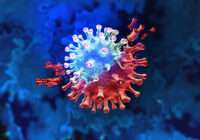Almost one year into the COVID-19 pandemic, in mid-January, circumstances forced me to take a trip to Chennai, India, from my home in the Bay Area, California. I was apprehensive about traveling abroad during the pandemic. I suspected the rapid spread of the coronavirus globally had to do with international travel, a viewpoint that has been corroborated by a study conducted by researchers at the University of Aberdeen in Scotland.
I put aside my fears in the hope that the United States and India, two nations that have been severely impacted by COVID-19, would have mandated enough checks and controls to ensure safe travel.
Germany’s Handling of the Pandemic: A Model of Incompetence?
India and the US had established an air transport bubble, allowing for nationals from either country to travel to the other if they meet specific requirements. As a US citizen holding an Overseas Citizen of India card, I qualified for travel.
Leaving the Bay Area
I was quite impressed with the Air Suvidha portal from India’s Ministry of Civil Aviation. From that system, it was possible to complete the required formalities to enter India. I had to fill in a self-declaration form that is required of all incoming international passengers, and I could apply for an exemption from institutional quarantine with a negative COVID-19 test taken within 72 hours of commencing the journey.
My initial impression at San Francisco International Airport was promising. An airline worker performed a thermal scan before allowing me to join the line for check-in, maintaining a safe 6-foot distance from others. They also checked my negative RT-PCR test report before issuing me the boarding pass. However, a negative COVID-19 test report is not mandatory to undertake travel to India. Passengers with certain extenuating circumstances, or those who opt to take the test at Delhi airport, can actually board the flight, presenting an opportunity for a possible COVID carrier to slip through and mingle with others.
Social distancing in the airport fell apart soon after the check-in process. While boarding the aircraft, as well as while going through security checks, my experience was no different from pre-pandemic travel times, save for the fact that people were wearing masks. Onboard, the cabin crew offered personal protective equipment (PPE), including face shields, that very few people chose to use. It was amusing to see many people tucked away the PPE gear offered by the airline and carried it with them unopened, as though they were travel souvenirs.
The inflight service team, draped in protective coveralls, did their best to minimize interaction with passengers. San Francisco to Delhi is a long-haul flight lasting more than 16 hours. Despite their stated intent to have minimal contact with passengers, the service crew did a stellar job of taking care of people’s needs, serving them with a smile that was hidden behind their mask and face shield.
The pandemic did bring about unusual behavior among passengers on that San Francisco-to-Delhi flight. It is a common occurrence that as soon as an aircraft lands and the seat-belt signs go off, people immediately get up from their seats and open the overhead lockers. My observation during the flight I was on was no different.
Within seconds after the aircraft had reached the arrival gate, people were crowding the aisle, ready to disembark. The crew announced politely, but firmly, that unless everyone was seated and prepared to deplane in an orderly manner, no one would be able to leave. It was quite a sight to see passengers back in their seats, their bags and luggage haphazardly placed in the aisle, or on their laps, before disembarking resumed.
Landing in India
Typically, one would have to clear immigration at the first port of entry in a country. Had I completed my immigration formalities in Delhi, everything I had done in the Air Suvidha portal and my RT-PCR test report would have been critical to enter India. However, when traveling by Air India, it is possible to land in Delhi and continue as an international traveler to Chennai, my final destination, and complete the formalities there.
My itinerary allowed me to do the latter, and I was surprised when no one in a position of authority — neither the immigration officer, nor a health inspector of some kind — bothered to look at my RT-PCR test report. Local jurisdiction at Chennai airport required me to have an e-pass to enter the state of Tamil Nadu that I did not possess, but I was able to secure one without any trouble from the arrivals lobby.
Despite the availability of scientific studies that show the relationship between international air travel and the spread of the coronavirus, the fact that a person without a negative test result could actually board the aircraft, and the lax enforcement of the mandatory safety checks in Chennai airport, meant I could give no more than a C+ for the journey.
While I was in Chennai, there was a change in administration in the United States. President Joe Biden mandated the need for a negative COVID-19 test result, or proof of having recovered from the disease, for all international air travelers coming into the US, without exceptions. Armed with a negative RT-PCR test report, I started my journey back home in the first week of February.
Going Home
In sharp contrast to my experience in San Francisco, Chennai airport was crowded and chaotic, with no social distancing being observed. The US Centers for Disease Control and Prevention (CDC) requires airlines to confirm a negative COVID-19 test result and to clear every passenger for travel into America. It was no surprise that in addition to verifying the usual travel documents, my test result was also reviewed when I checked in at the Chennai airport and prior to boarding the San Francisco flight at Delhi airport.
At San Francisco International Airport, apart from cursory questions pertaining to my travel, no one asked to see my COVID-19 test report or reviewed the passenger disclosure and attestation form that I had to complete. I offered both to the immigration official, who waved them off.
It is true that the CDC has delegated the responsibility of verifying travel documents, including a negative test result, to the airlines, as stated clearly in the passenger disclosure form. In a world where every single person is conscientious and self-disciplined, cross-checking the work of one entity by another may not be necessary. Sadly, with infections soaring, the world is still reeling under the grip of a pandemic that has infected more than 128 million people — and that’s just those confirmed via a test — and resulted in the death of 2.8 million of them.
I would have felt safer if authorities in India and the US had been more thorough during my travels. Instead, I just feel lucky that I was fortunate to avoid contracting the virus myself, walking away unscathed from a game of Russian roulette.
The views expressed in this article are the author’s own and do not necessarily reflect Fair Observer’s editorial policy.
Support Fair Observer
We rely on your support for our independence, diversity and quality.
For more than 10 years, Fair Observer has been free, fair and independent. No billionaire owns us, no advertisers control us. We are a reader-supported nonprofit. Unlike many other publications, we keep our content free for readers regardless of where they live or whether they can afford to pay. We have no paywalls and no ads.
In the post-truth era of fake news, echo chambers and filter bubbles, we publish a plurality of perspectives from around the world. Anyone can publish with us, but everyone goes through a rigorous editorial process. So, you get fact-checked, well-reasoned content instead of noise.
We publish 2,500+ voices from 90+ countries. We also conduct education and training programs
on subjects ranging from digital media and journalism to writing and critical thinking. This
doesn’t come cheap. Servers, editors, trainers and web developers cost
money.
Please consider supporting us on a regular basis as a recurring donor or a
sustaining member.
Will you support FO’s journalism?
We rely on your support for our independence, diversity and quality.






